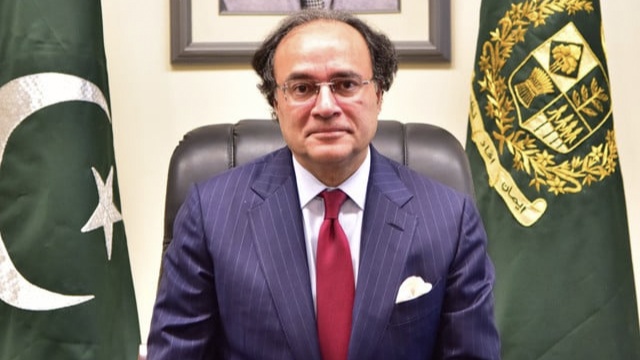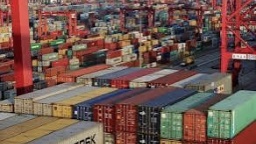Reiterating the pressing need for reforms and broadening of tax base, Federal Minister for Finance and Revenue, Senator Muhammad Aurangzeb asserted here on Thursday that below 10 percent tax to GDP ratio was not sustainable.
“We have to take it up to 13 percent in next three years gradually,” the minister said while addressing the post-budget press conference, adding as per the international bench marks, no country could sustain at 9.5 tax to GDP ratio base without external assistance. Hence, there is dire need to enhance tax to GDP ratio, he added.
Aurangzeb said that the talks with the International Monetary Fund (IMF) are moving in the right direction and expressed hope that a staff-level agreement will be reached in July.
Addressing the post-budget press conference in Islamabad, the minister shared that virtual negotiations with the IMF are underway but declined to comment further on the subject until a SLA with the Fund is finalized.
“I don’t want to say anything in finality other than the fact that it’s moving positively,” he said, in the presser, a day after unveiling an expansionary budget proposal of Rs18.8776 trillion for FY25.
The federal government’s budget, which analysts believe has been tailored to meet IMF requirements for securing another bailout of $6 to $8 billion under the medium-term Extended Fund Facility (EFF), marks a 25% increase over the outgoing fiscal year’s outlay.
The government has set a challenging tax revenue target of Rs13 trillion for the next fiscal year starting July 1, a near 40% jump from the current year, in the national budget that looked to strengthen the case for a new bailout deal with the IMF.
As the authorities find ways to increase revenues to reduce fiscal deficit as part of reforms being discussed with the IMF, they have raised taxes that will fetch additional revenues of Rs3.8 trillion in line with the IMF demands.
In the budget, the government proposed raising both direct and indirect taxes to a historic high, showing that a loan deal with the International Monetary Fund (IMF) to bail out the economy outweighs the relief direly needed by the inflation-broken masses, whose incomes have hit rock-bottom in recent years.
It has jacked up taxes on salaried, non-salaried class, real estate, retailers, vehicles, removed GST exemptions and slapped taxes on milk and milk products, mobile phones, and tier-1 retailers of branded stores at 18%.
On a question of reservations by the Pakistan Peoples’ Party on the Rs18.7 trillion budget, the federal minister said that all the allied parties were given a briefing on the budget proposal and were taken on board.
Gradual PDL increase
During the presser today, the minister said that the increase in petroleum development levy (PDL) will be gradual and linked with international oil prices.
He also underscored the importance of doing away with undocumented economy with end-to-end digitization to reduce human intervention as much as possible and make the tax mechanism transparent and mitigate chances of corruption.
The minister admitted that the Federal Board of Revenue (FBR) could not do compliance and enforcement to the extent it should have done.
He said, the government had introduced progressive taxes in the federal budget for upcoming fiscal year 2024-25 to tax more those having high income.
He said, the country needed to move on the direction of broadening tax base to make economy sustainable adding therefore, it was imperative to bring into tax net the retailers and wholesalers to share the burden.
The minister said, the government had launched tax scheme for retailers and wholesalers and they were offered to registration on volunteer basis, however it was termed unsuccessful as of April 2024.
In May, he added, the FBR workforce mobilized itself and as of now around 31,000 retailers had registered themselves with the scheme.
He said, the registration would continue and tax would also be imposed from July 2024. “We have no other option but to get this sector into tax net,” he remarked.
The minister said that Point of Sale (PoS) scheme would be re-launched to do away with cash transactions.



